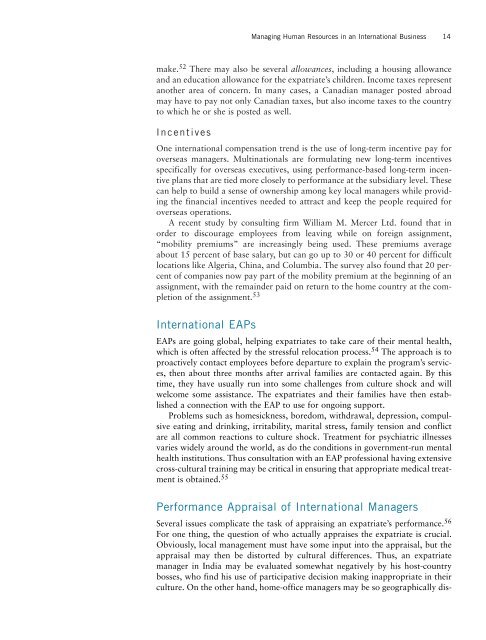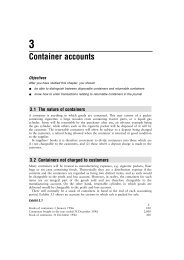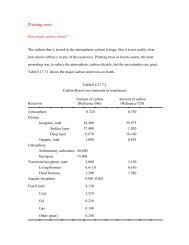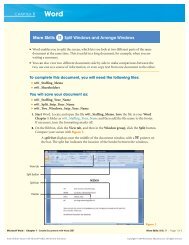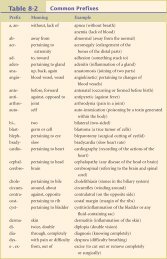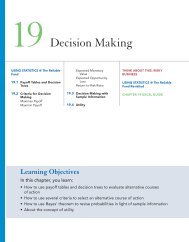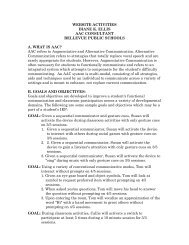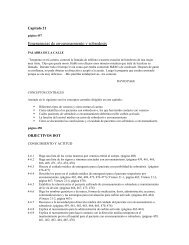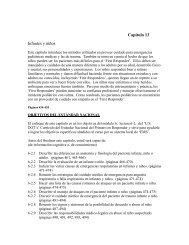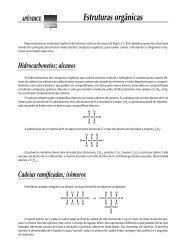Managing Human Resources in an International Business
Managing Human Resources in an International Business
Managing Human Resources in an International Business
You also want an ePaper? Increase the reach of your titles
YUMPU automatically turns print PDFs into web optimized ePapers that Google loves.
make. 52 There may also be several allow<strong>an</strong>ces, <strong>in</strong>clud<strong>in</strong>g a hous<strong>in</strong>g allow<strong>an</strong>ce<br />
<strong>an</strong>d <strong>an</strong> education allow<strong>an</strong>ce for the expatriate’s children. Income taxes represent<br />
<strong>an</strong>other area of concern. In m<strong>an</strong>y cases, a C<strong>an</strong>adi<strong>an</strong> m<strong>an</strong>ager posted abroad<br />
may have to pay not only C<strong>an</strong>adi<strong>an</strong> taxes, but also <strong>in</strong>come taxes to the country<br />
to which he or she is posted as well.<br />
Incentives<br />
One <strong>in</strong>ternational compensation trend is the use of long-term <strong>in</strong>centive pay for<br />
overseas m<strong>an</strong>agers. Mult<strong>in</strong>ationals are formulat<strong>in</strong>g new long-term <strong>in</strong>centives<br />
specifically for overseas executives, us<strong>in</strong>g perform<strong>an</strong>ce-based long-term <strong>in</strong>centive<br />
pl<strong>an</strong>s that are tied more closely to perform<strong>an</strong>ce at the subsidiary level. These<br />
c<strong>an</strong> help to build a sense of ownership among key local m<strong>an</strong>agers while provid<strong>in</strong>g<br />
the f<strong>in</strong><strong>an</strong>cial <strong>in</strong>centives needed to attract <strong>an</strong>d keep the people required for<br />
overseas operations.<br />
A recent study by consult<strong>in</strong>g firm William M. Mercer Ltd. found that <strong>in</strong><br />
order to discourage employees from leav<strong>in</strong>g while on foreign assignment,<br />
“mobility premiums” are <strong>in</strong>creas<strong>in</strong>gly be<strong>in</strong>g used. These premiums average<br />
about 15 percent of base salary, but c<strong>an</strong> go up to 30 or 40 percent for difficult<br />
locations like Algeria, Ch<strong>in</strong>a, <strong>an</strong>d Columbia. The survey also found that 20 percent<br />
of comp<strong>an</strong>ies now pay part of the mobility premium at the beg<strong>in</strong>n<strong>in</strong>g of <strong>an</strong><br />
assignment, with the rema<strong>in</strong>der paid on return to the home country at the completion<br />
of the assignment. 53<br />
<strong>International</strong> EAPs<br />
<strong>M<strong>an</strong>ag<strong>in</strong>g</strong> <strong>Hum<strong>an</strong></strong> <strong>Resources</strong> <strong>in</strong> <strong>an</strong> <strong>International</strong> Bus<strong>in</strong>ess 14<br />
EAPs are go<strong>in</strong>g global, help<strong>in</strong>g expatriates to take care of their mental health,<br />
which is often affected by the stressful relocation process. 54 The approach is to<br />
proactively contact employees before departure to expla<strong>in</strong> the program’s services,<br />
then about three months after arrival families are contacted aga<strong>in</strong>. By this<br />
time, they have usually run <strong>in</strong>to some challenges from culture shock <strong>an</strong>d will<br />
welcome some assist<strong>an</strong>ce. The expatriates <strong>an</strong>d their families have then established<br />
a connection with the EAP to use for ongo<strong>in</strong>g support.<br />
Problems such as homesickness, boredom, withdrawal, depression, compulsive<br />
eat<strong>in</strong>g <strong>an</strong>d dr<strong>in</strong>k<strong>in</strong>g, irritability, marital stress, family tension <strong>an</strong>d conflict<br />
are all common reactions to culture shock. Treatment for psychiatric illnesses<br />
varies widely around the world, as do the conditions <strong>in</strong> government-run mental<br />
health <strong>in</strong>stitutions. Thus consultation with <strong>an</strong> EAP professional hav<strong>in</strong>g extensive<br />
cross-cultural tra<strong>in</strong><strong>in</strong>g may be critical <strong>in</strong> ensur<strong>in</strong>g that appropriate medical treatment<br />
is obta<strong>in</strong>ed. 55<br />
Perform<strong>an</strong>ce Appraisal of <strong>International</strong> M<strong>an</strong>agers<br />
Several issues complicate the task of apprais<strong>in</strong>g <strong>an</strong> expatriate’s perform<strong>an</strong>ce. 56<br />
For one th<strong>in</strong>g, the question of who actually appraises the expatriate is crucial.<br />
Obviously, local m<strong>an</strong>agement must have some <strong>in</strong>put <strong>in</strong>to the appraisal, but the<br />
appraisal may then be distorted by cultural differences. Thus, <strong>an</strong> expatriate<br />
m<strong>an</strong>ager <strong>in</strong> India may be evaluated somewhat negatively by his host-country<br />
bosses, who f<strong>in</strong>d his use of participative decision mak<strong>in</strong>g <strong>in</strong>appropriate <strong>in</strong> their<br />
culture. On the other h<strong>an</strong>d, home-office m<strong>an</strong>agers may be so geographically dis-


